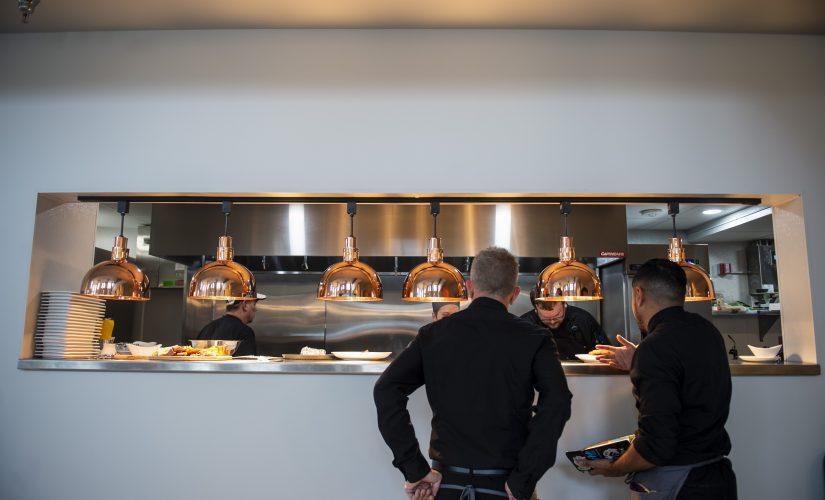In my early 20s, I have spent most of my time working in the food-service industry. I am currently in a position of services ranging from front-of-house, food prep, dishwasher and lead shift position that require additional management skills.
Being a full-time student and working three minimum wage jobs, exhaustion would be an understatement.
Often times when I have stressful days in the food service industry, I question “why” I have to be in this position in order to survive and pay my bills.
I also question why people feel entitled to disrespect and demand from me without any remorse or consideration for other factors that go into jobs in the food-service industry.
However, I have started to realize that although working in the food service is stressful and exhausting, it has started to shape me into the person I am today.
Working in food service has made me learn to value hard work. When my feet have blisters and my back is constantly aching, it reminds me to reflect back to the time I worked an office job and thought that was hard work. I am not diminishing that office work is not hard work, but it’s most certainly not labor-intensive work like food service is.
You learn the importance of tipping and how valuable tipping is to the people who are serving you. I, myself, admit that before working in food service, I was guilty of only leaving $1 or $2 for a tip. I was naive and uneducated in how much work is put into being in the food industry for me to enjoy my meal.
Many customers who come through the line that I work at say, “Does the tip go to you?” I hesitate to explain that our tips are split up because I know they will decide not to tip. It boggles my mind that people assume that because it does not go directly to the person who served you, that it does not matter to tip.
The reality is, everyone in the food-service industry puts in hard work from our dishwashers, line-workers, preps, cooks and leads to our managers; everyone plays a crucial role in our day-to-day service to be top notch.
Something that people neglect to remember is our food does not make itself and the constant hard work of having to be prepared for rushes/big parties means that there is an enormous amount of work that goes into our food and our service.
Food service also teaches you that you cannot please everyone in your life. There will be customers that try to ruin your day by telling you that the quality of their food is your fault. There are customers who go to great lengths to criticize how the store looks, what it needs, what they need and what they wish they had more of.
Although these can be important key factors in running a successful business, it is a constant battle in trying to please people when most decisions are beyond your authority. Although this can be a hard skill to balance, patience with customers has taught me how to have patience in many other aspects of my life.
Food service teaches you how to remain in control when you feel your emotions arising and getting hot. You learn how to handle volatile situations in a professional manner, which can be beneficial for both your professional and personal life.
It also teaches you that a raise and extra money come with having to put in hard work by proving your worth for a company. If you want to be in a higher position for your company, you have to constantly take on more work and responsibility than you are often ever even compensated for.
This skill can be beneficial once you have graduated college and are looking for a job in your field. Most students, including me, have had the misconception that a degree means a guaranteed job. However, it’s more often than not that people have to start at the bottom to work their way up to higher positions of authority, which is a skill taught in food service regarding how unpaid work can eventually pay off.
Most people who spend most of their lives avoiding employment in food service are fortunately privileged enough to not have to work a food service job.
However, I think it is beneficial for everyone to experience working in the food industry once in their life to both appreciate customer service and to gain personal communication skills for their future careers.




